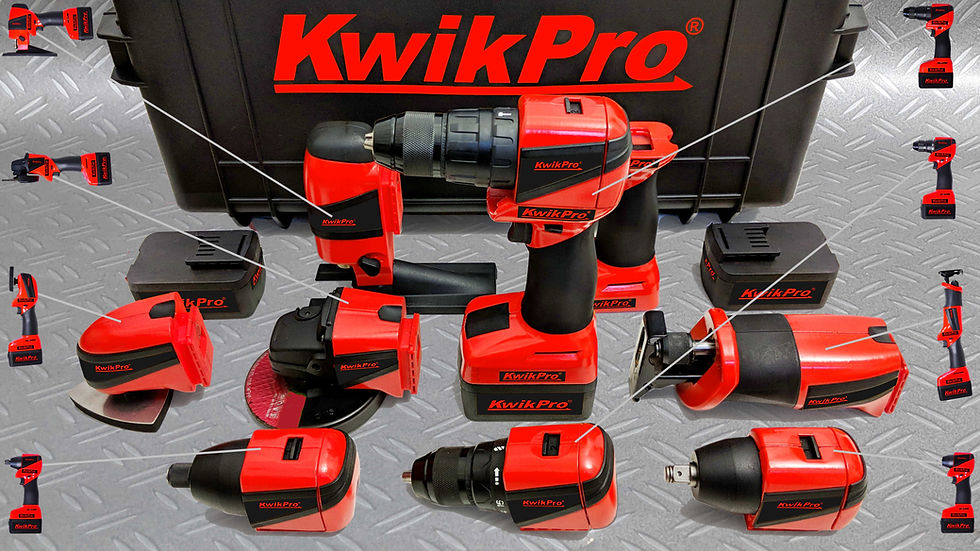What's the best power tool for the job? Drills.
- Robert
- May 26, 2018
- 2 min read
Seems like an obvious question with an obvious answer but when it comes to power tools how many people have the right tool for the job with them when they need it?
Clearly a power drill is a great solution for many jobs but which drill do you need for drilling what?
If you are drilling into brick, block or stone then you need a drill designed for drilling masonry. Likewise if you need to drill accurate holes in metal, plastic or wood, for example, then another kind of drill designed for those tasks will be most suitable.
A combination drill, more commonly known as a combi drill, is an impact drill where the drill bit and chuck operate in a combination of rotation and backwards and forwards hammered stroke actions. Combi drills are a great solution for drilling holes; usually from around 4 mm up to around 10 mm or 13 mm diameter, depending on chuck size, and may be up to 75 mm deep. Combi drills are usually easy to hold with one hand and can often be used for drilling holes in other materials that don't benefit from the impact action when the right setting is selected; providing the holes don't need to be drilled particularly accurately.
Rotary drills are less sophisticated and less versatile than combi drills but they are capable of drilling far more accurate holes in materials that do not benefit from a hammer or impact action. Because rotary drills only rotate, they can have more accurate output bearings and hence they can drill more accurately. Rotary drills have less mechanical complexity and are generally lighter weight and shorter than combi drills.
So, if you are a professional tradesman, which drill should you have? Most jobs require both drills at some time or other. With regular power tools you'll most likely have to make a choice but with a good system with easily removable drill heads you can have both! KwikPro is that system - take a look now - www.kwikprotools.com
© Copyright 2018 - Power Tool Systems Limited - UK - www.kwikprotools.com



Comments